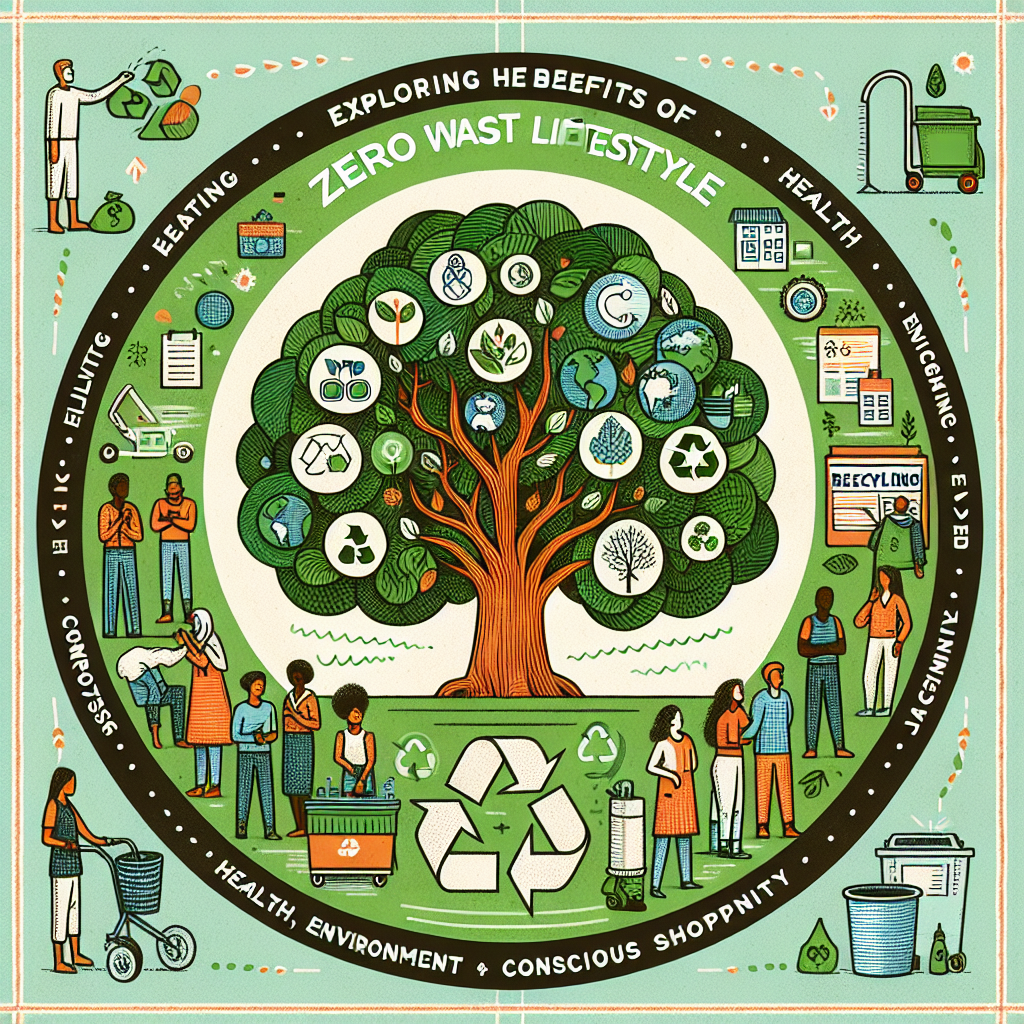As the world grapples with the escalating issues of waste accumulation and environmental degradation, the concept of zero waste has gained significant traction. This philosophy encourages the redesign of our resource lifecycle, aiming for minimal waste creation through conscientious consumption, recycling, and composting. Beyond reducing our ecological footprint, the zero waste movement offers profound benefits across three pivotal domains: health, environment, and community.
Health Benefits
1. Reduction of Toxic Exposure
One of the significant perks of a zero waste lifestyle is the reduction of toxic substances in our daily lives. Single-use plastics and packaged items often contain harmful chemicals such as phthalates and bisphenol A (BPA), which can leach into food and beverages. By opting for bulk items, reusable containers, and natural materials, individuals can minimize their exposure to these toxic compounds, leading to better overall health outcomes.
2. Improved Nutrition
Choosing a zero waste lifestyle often involves cooking at home with fresh, local produce instead of relying on pre-packaged, processed foods. This shift can contribute to healthier eating habits, promoting a diet rich in fruits, vegetables, and whole grains, which are essential for maintaining good health. Moreover, home-cooked meals help people connect with their food sources and make more conscious dietary choices.
3. Mental Well-being
Reducing clutter and simplifying one’s life can have mental health benefits as well. The zero waste movement encourages individuals to be mindful and intentional with their possessions, potentially alleviating the stress and anxiety associated with materialism and overconsumption. A simplified lifestyle fosters a sense of accomplishment and can promote mental clarity.
Environmental Benefits
1. Lower Carbon Footprint
The zero waste initiative directly contributes to reduced waste generation, which subsequently lowers greenhouse gas emissions. Landfills are significant sources of methane—a potent greenhouse gas—when organic waste decomposes. By composting and minimizing waste, we can help mitigate the climate crisis and move toward a more sustainable future.
2. Conservation of Resources
Embracing zero waste means supporting a circular economy where materials are reused, recycled, or composted, reducing the need for new resource extraction and production. This conservation effort not only saves natural resources like minerals and water but also reduces the energy consumed in production processes.
3. Biodiversity Preservation
Minimizing waste can also help protect natural habitats and biodiversity. Conventional waste management practices often lead to habitat destruction and pollution, threatening wildlife. By adopting zero waste principles, we promote practices that mitigate harm to ecosystems, ultimately preserving biodiversity for future generations.
Community Benefits
1. Strengthening Local Economies
Zero waste initiatives often encourage local purchasing, supporting local farmers and businesses. When communities prioritize local products, they reduce reliance on imported goods, leading to a more resilient local economy. This creates a symbiotic relationship where consumers benefit from fresh, sustainable products while local entities thrive.
2. Community Engagement and Education
Zero waste initiatives offer an opportunity for communities to come together, fostering collaboration and education. Workshops, community gardens, and local clean-up days promote a shared sense of purpose, enabling individuals to learn from one another and work collectively towards sustainability goals. Such activities also nurture relationships within neighborhoods, enhancing social cohesion.
3. Advocacy for Sustainable Practices
Adopting a zero waste lifestyle encourages individuals to advocate for policy changes at the local and national levels. Communities organized around zero waste principles can push for sustainable waste management practices, green legislation, and improved recycling programs, leading to larger systemic changes that benefit society as a whole.
Conclusion
The zero waste movement presents a compelling framework not only for reducing waste but also for enhancing our health, protecting the environment, and empowering communities. By reevaluating our consumption habits and embracing sustainability, we can pave the way for a healthier future—one that respects both our planet and each other. As we explore and adopt the benefits of zero waste, we contribute to a ripple effect of positive change, moving toward a world where resources are used wisely, health is prioritized, and communities are strengthened.


